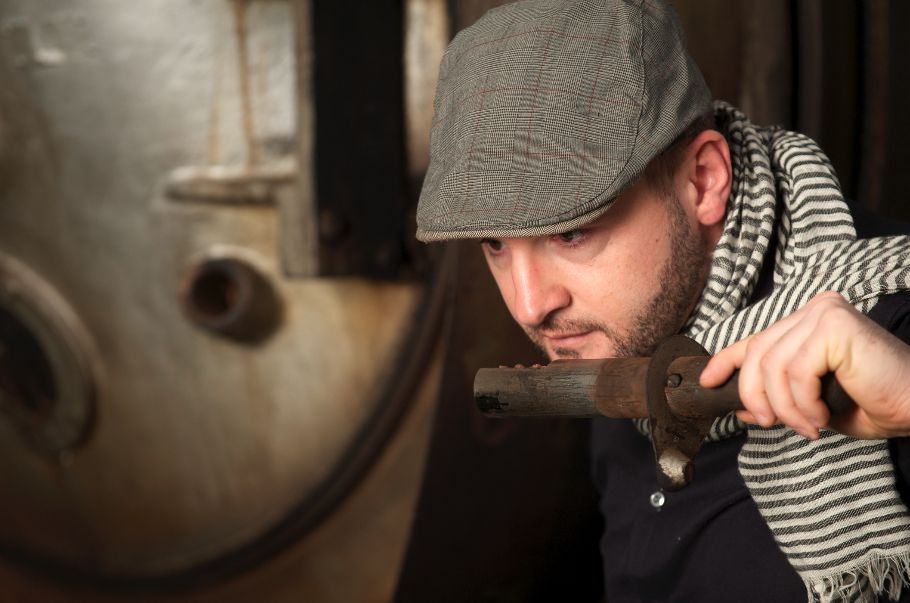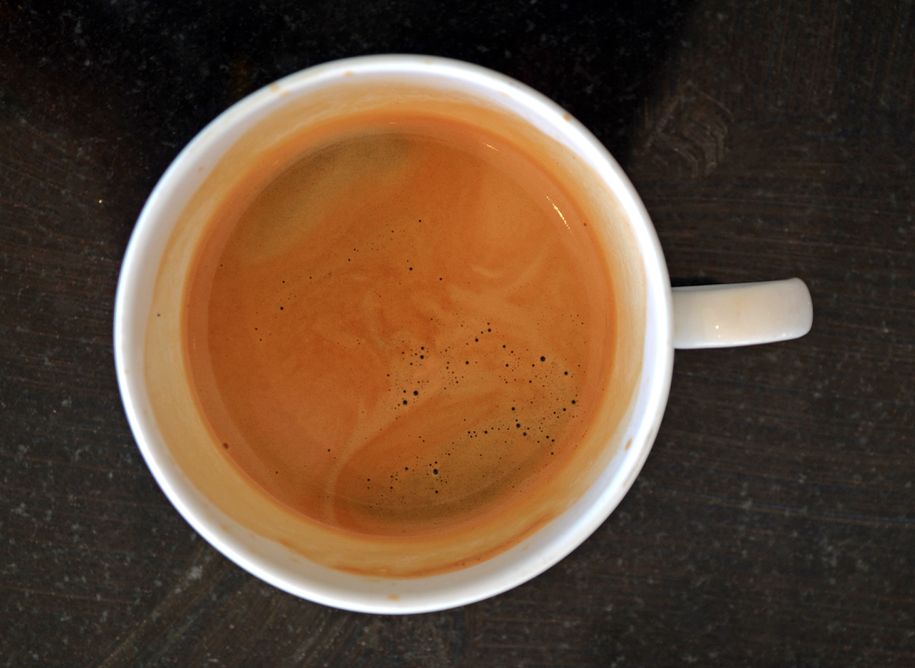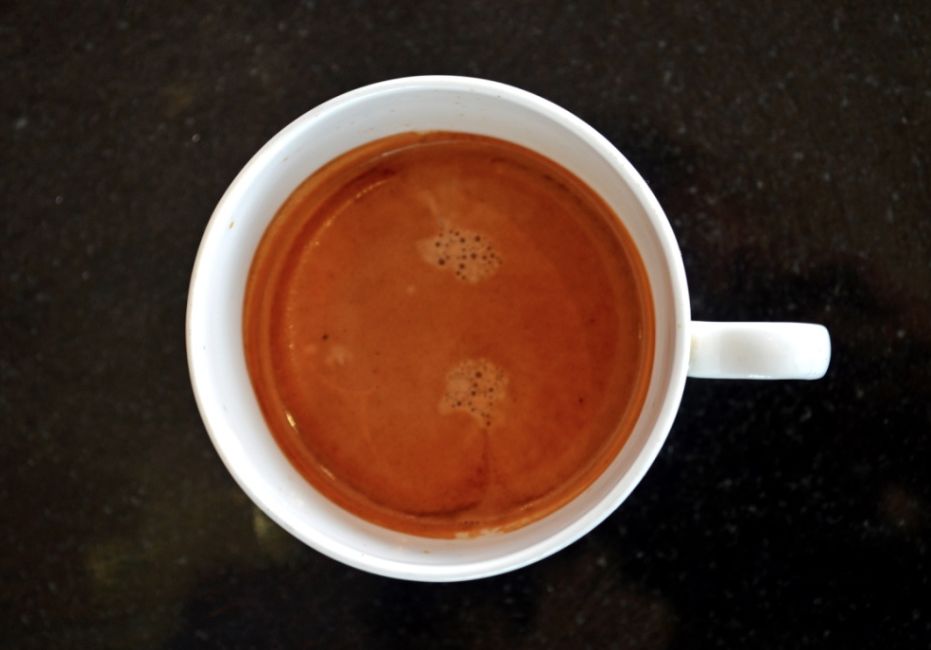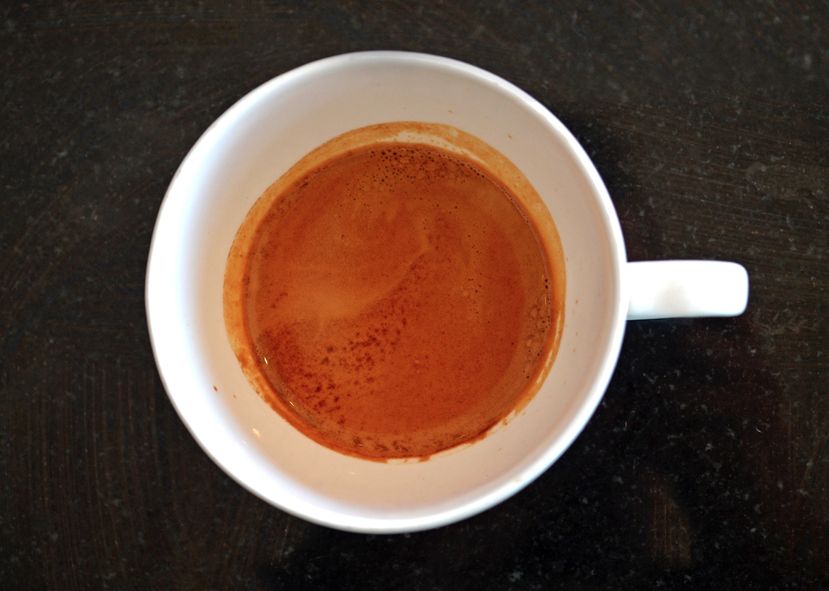An espresso is to coffee what the perfect béchamel sauce is to cooking. It seems simple enough at the outset but soon, you learn that there is much, much more to it than meets the eye.
Your first sip of espresso is likely to be bitter, so bitter in fact that your taste buds scream, “stop right there!” and send messages to your brain that espresso is always bitter and there will never be another flavour that you can discover in this particular method of brewing coffee. You may have had the same experience the first time you tried an olive when you were a child or with your first sip of whisky or red wine, before your palate was used to such things. Espresso can certainly be categorised in this acquired taste group and when you reach that point of appreciation, there’s no going back.
Your taste buds are introduced to a whole new spectrum of sweet and fruity and chocolate and acidity and the coffee brewed by forcing a small amount of nearly boiling water under pressure through finely ground coffee beans takes on a whole new meaning in your life. The rich viscosity of the intensely concentrated coffee capped with a luxurious crema becomes necessary to meaningful life. The Italians have got it right, training those taste buds from a young age, just ask Italian Barista Champion, Francesco Sanapo!

Basic Rules for an Espresso
By Francesco Sanapo, Italian Barista Champion 2013
Preparing a good espresso is a real form of art. Still today I remember the first things that my father taught me: he always told me that when you prepare an espresso you have to concentrate and to respect all the rules, because even a small distraction can lead to serve an awful espresso. Today, 20 years after these teachings, I still hear my father's voice in my ears every time I'm about to prepare an espresso.
Telling my story is very easy because it has only one leading thread: coffee. For all my life I've had just one job: I've started in my family's bar and today I travel around the world to spread the coffee culture. I became a barista by working with my family in our bar in the South of Italy (in the region of Puglia), then I continued as a barista in Florence. Nowadays, I'm a consultant in the industry of coffee and I work for many companies and roasters; also, I've created an event dedicated to spreading coffee culture, which is called Barista&Farmer (for further info, visit
www.baristafarmer.com ).
Being a barista today is very different from a few years ago: now, a barista can be a professionally recognized figure and has much more visibility, although we still haven't reached the same visibility that chefs have, but we'll get there. This is also because of the existence of the World Barista Championship with its various competitions that allowed baristas to grow and to get more visibility and respect.
Nowadays, the community of coffee lovers grows every day all throughout the world, as much as the exponential growth of the consumption of coffee; specialty coffee bars are more and more appreciated by final consumers and the coffee ritual is living a whole new life.
The amount of consumers who are quality-conscious and curious to know the characteristics of the different coffees is always increasing, as much as the amount of people who are willing to prepare a good espresso at home. For this reason, I'd like to use this opportunity to spread the knowledge on the basic rules for preparing an espresso for consumers and novice baristas.
Remember that no matter what class of home espresso machine you have, these simple tips can improve your end result. There are a few problems that every beginner experiences that I have tried to address here.
1. First of all you have to choose a good coffee: my advice is to buy coffees whose producers indicate clearly and precisely the origin and quality. You can't just say it's 100% arabica: it doesn't mean anything because it's like a wine producer who says that his wine is 100% made of grapes. Ask for more info about the product you're about to buy.
2. Buy a coffee that was roasted for espresso: generally, that means a medium roasting. Again, talk to your local roaster. Avoid buying highly roasted coffees (very dark ones), that tend to have oil on the surface of the bean and tend to give your espresso hints of rancid, but also avoid buying very clear roasts because your result will be an unbalanced, almost sour, espresso.
3. Buy coffee in beans and grind it just before using it. The aroma in your cup will be richer and your sense of smell will be delighted.
4. For a good extraction, you will have to find the correct proportion between grinding and dosing. Keep in mind that 20-30 milliliters (ml) of espresso requires an extraction which lasts about 20 to 30 seconds. Once you know this proportion, adjusting the grinding becomes easier, but I'll try to make it even easier for you.
5. In case of the extraction of the espresso (on average 20-30 ml) lasting only 10 seconds (technically, this error is called “under extraction” and it presents a light crema, fading and light in color, with a very poor taste), what you have to do is making a finer grinding, so the water will find a more compact obstacle. This will allow you to increase the time needed for the water to pass through the coffee, thus lengthening the time of infusion.

6. In case of the extraction of the espresso (on average 20-30 ml) only being obtained in 50 seconds (an error technically called “Over-extracted espresso”, with a dark crema often together with a white spot, plus the taste will present hints of gum, coal and peaks of bitterness), what you should do in this case is increase the size of the ground parts of coffee, which will cause a decrease of the amount of time spent by the water inside the coffee.

7. As I said earlier, a 20-30 ml espresso is obtained in 20-30 seconds. In the cup, you will find a fine and elastic crema that stretches as you tilt the cup, with a hazel colour and red stripes on the surface (technically called “tiger skin”).

I really hope that together, we can all spread the quality coffee culture all throughout the world. Drinking a good coffee helps us in living a better life.



